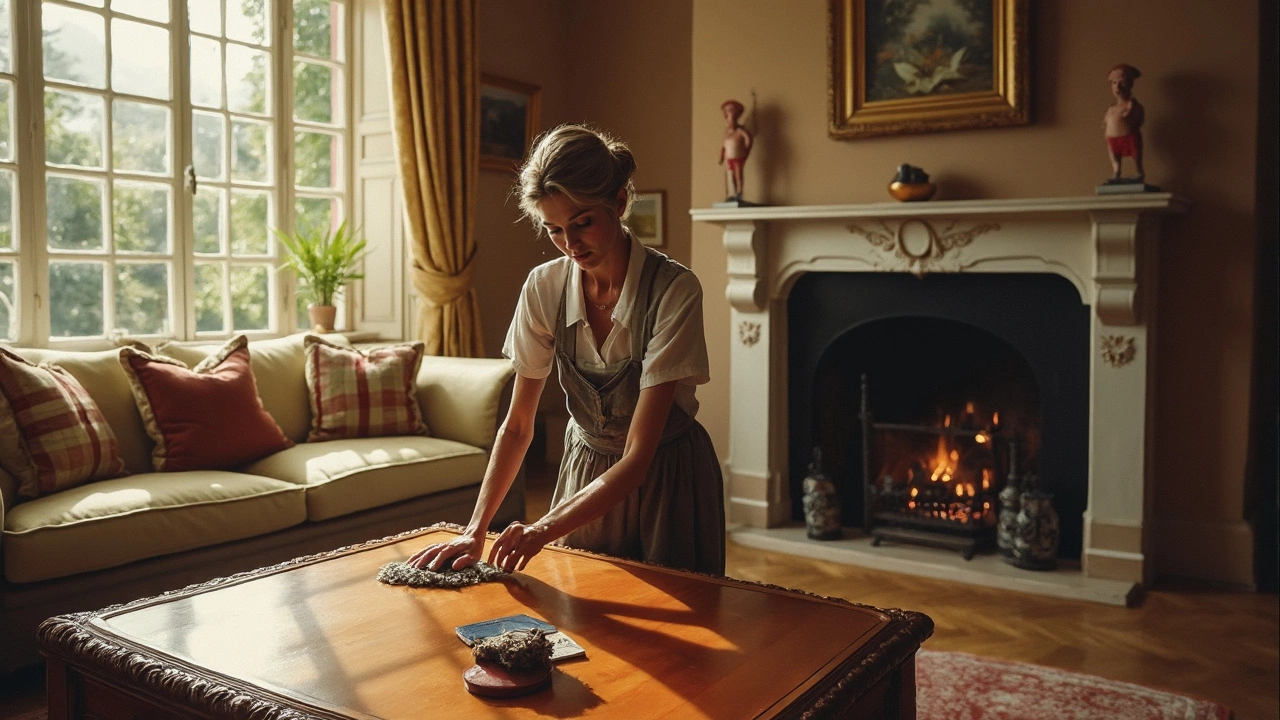Tipping – Practical Cleaning Tips for Every Home
When it comes to keeping a house tidy, the right tipping can make all the difference. You don’t need fancy gadgets or expensive products – just a few smart habits that work day in, day out. Below are the most useful tips you can start using right now.
Everyday Habits That Save Time
First, set a 10‑minute tidy‑up routine at the end of each day. Pick up stray items, wipe kitchen counters, and give the bathroom sink a quick swipe. Doing this daily prevents grime from building up and cuts down on deep‑cleaning sessions later.
Second, keep a small cleaning caddy on each floor. Fill it with an all‑purpose spray, a microfiber cloth, and a scrub brush. When you see a spill, you’re already prepared – no running to the cupboard and no excuses.
Third, use the “two‑minute rule” for messes. If a mess can be fixed in under two minutes, do it immediately. This stops tiny tasks from turning into big jobs that feel overwhelming.
Smart DIY Solutions
Household staples like baking soda, vinegar, and lemon are gold mines for cleaning. Mix 1 part vinegar with 1 part water for a safe glass cleaner. Sprinkle baking soda on a wet sponge to scrub stovetops without scratching.
For tough oven grease, apply a paste of baking soda and a dash of water, let it sit an hour, then wipe away. The heat from the oven will finish the job, leaving less chemical residue.
If you need to get rid of urine smell on a mattress, sprinkle baking soda, let it sit 30 minutes, then vacuum. For deeper odors, an enzymatic cleaner works better because it breaks down the molecules that cause the smell.
When cleaning windows, a mix of vinegar and a few drops of dish soap spreads easily and dries streak‑free. Use a microfiber cloth for a flawless finish.
These DIY recipes save money and keep your home free from harsh chemicals, aligning with the eco‑friendly cleaning approach many people prefer.
When to Call a Pro
Even the best tips have limits. If a carpet is soaked with oil, a professional steam cleaner can extract the stain without damaging fibers. For large‑scale pressure washing—like a driveway or house exterior—proper PSI settings matter. Too high pressure can etch surfaces; too low won’t cut through grime.
Similarly, end‑of‑tenancy moves often require deep‑cleaned carpets and mattresses. A professional service can guarantee landlords that the property meets health standards, saving you from disputes.
Remember, the goal of tipping isn’t to replace specialists but to make everyday cleaning easier and more effective.
Start with the simple habits above, mix in a few DIY solutions, and know when it’s time to call in the experts. Your home will stay cleaner longer, you’ll spend less time scrubbing, and you’ll feel more in control of your space.

Do You Tip a House Cleaner? What to Know Before You Decide
Not sure if you should tip your house cleaner? This article breaks down when, why, and how much to tip. It looks at different types of cleaning services, tips for handling awkward tipping situations, and what most people actually do. You'll find practical advice based on real experiences, not old-fashioned rules or confusing customs. Get the answers you need to make your decision—without any guilt trips.
Read More
Do You Tip a Cleaning Lady Who Works for Herself?
Tipping a cleaning lady who runs her own business can be a tricky decision. Should you tip them like you would in a service industry or is the fee enough? This article dives into the etiquette of tipping a cleaner who works independently, explores reasons to tip, and gives practical advice on when it might be appropriate. Whether you're moving out and need a spotless new start or just curious about common practices, get clarity on navigating this often fuzzy social norm.
Read More